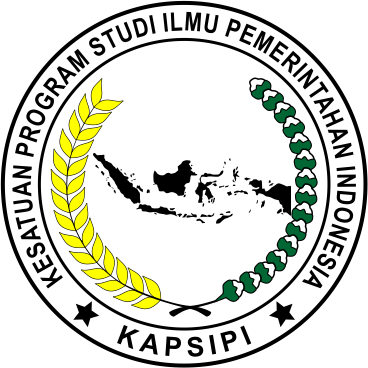Bibliometric Analysis of Research Trends in Data Security and Privacy for E-Government Implementation in Indonesia
DOI:
https://doi.org/10.18196/agimjournal.v2i1.20Keywords:
E-Government, Security, Privacy, EGDI, BibliometricAbstract
This research analyses privacy and data security issues in the e-government sector in Indonesia through a qualitative approach with a bibliometric analysis method. As a developing country, Indonesia has shown progress in the implementation of e-government, which is reflected in the increasing rankings in the E-Government Development Index (EGDI) released by the United Nations. However, behind these developments, there are significant challenges related to personal data protection and cybersecurity. The novelty of this research lies in its bibliometric approach, which provides a comprehensive and systematic analysis of existing studies on data security and privacy in Indonesia's e-government sector. Unlike previous studies that focus on case studies or policy evaluations, this research maps research trends, key contributors, and gaps in the literature, offering a broader perspective on the issue. Additionally, this study contributes by highlighting the urgent need for interdisciplinary collaboration between policymakers, cybersecurity experts, and the public to develop sustainable security strategies. The results of this study emphasise the need for a comprehensive strategy to improve data security in e-government, including strengthening regulations, investment in cybersecurity infrastructure, and promoting public digital literacy. In the absence of concrete measures to address these challenges, the risk of data leakage is likely to persist, jeopardising the sustainability of digital transformation in Indonesia.
References
Akimov, A., & Kadysheva, K. (2023). E-Government As a Tool for Communication With Young People: Legal Aspects. Journal of Law and Sustainable Development, 11(1), 1–11. https://doi.org/10.37497/sdgs.v11i1.272
Asyari, H. Al. (2023). Between Freedom And Protection: A Critical Review Of Indonesia’s Cyberspace Law. Prophetic Law Review, 5(1), 79–103. https://doi.org/10.20885/plr.vol5.iss1.art5
Dewi, L. P. R. S., & Suardana, I. B. R. (2023). Reflections of agile governance in public services in the digital age. Publisia: Jurnal Ilmu Administrasi Publik, 8(1), 84–90. https://doi.org/10.26905/pjiap.v8i1.9154
Dhandar, K. A. (2024). E-Government and Digital Transformation: Investigate the implementation and impact of e-government initiatives on public service delivery, citizen engagement, and administrative efficiency. Gurukul International Multidisciplinary Research Journal, 2394, 3–13. https://doi.org/10.69758/gimrj/2408ii05v12p0001
Ersen, N., Akyüz, İ., & Akyüz, K. C. (2024). Bibliometric Analysis of the International Journal in Wood Science Using Visualization Mapping Method. Eurasian Journal of Forest Science, 12(2), 47–65. https://doi.org/10.31195/ejejfs.1467759
Fajry, A., & Barra, A. (2024). Analisis Bibliometrik Model Regresi Spline untuk Pemetaan Tren dan Pengembangan Strategi Penelitian Menggunakan VOSviewer. Nucleus, 74–82.
Gonin, A. (2024). Stephens, Melodena, Awamleh, Raed, and Salem, Fadi (Eds.) (2022) Agile Government: Emerging Perspectives in Public Management, World Scientific Publishing Company. Information Polity, 29(2), 253–255. https://doi.org/10.3233/ip-249005
Hendra Wicaksana, R., Imam Munandar, A., Samputra, P. L., Salemba, J., No, R., & Indonesia, J. (2020). Studi Kebijakan Perlindungan Data Pribadi dengan Narrative Policy Framework: Kasus Serangan Siber Selama Pandemi Covid-19 A Narrative Policy Framework Analysis of Data Privacy Policy: A Case of Cyber Attacks During the Covid-19 Pandemic. Jurnal Ilmu Pengetahuan Dan Teknologi Komunikasi, 22(2), 143–158. http://dx.doi.org/10.33164/iptekkom.22.2.2020.143-158
İri, R., & Ünal, E. (2024). Bibliometric Analysis Bibliometric Analysis of Research (1980-2023). Ahi Evran Üniversitesi Sosyal Bilimler Enstitüsü Dergisi, 10(2), 386–403. https://doi.org/10.31592/aeusbed.1446738
Juaningsih, I. N., & Hidayat, R. N. (2022). Legal Protection For The Community In Cyber Space Through Regulation Forming With The Omnibus Mehtod. Ikatan Penulis Mahasiswa Hukum Indonesia Law Journal, 2(2), 143–156. https://doi.org/10.15294/ipmhi.v2i2.54684
Judijanto, L., Rahardian, R. L., Muthmainah, H. N., & Erkamim, M. (2023). Analysis of Threat Detection, Prevention Strategies, and Cyber Risk Management for Computer Network Security in Government Information Systems in Indonesia. West Science Information System and Technology, 1(02), 90–98. https://doi.org/10.58812/wsist.v1i02.479
Lazarides, M. K., Lazaridou, I., & Papanas, N. (2023). Bibliometric Analysis: Bridging Informatics With Science. The International Journal of Lower Extremity Wounds, 15347346231153538. https://api.semanticscholar.org/CorpusID:256389006
Maulidya, R., & Rozikin, M. (2022). Analisis Retrospektif Kebijakan Satu Data Indonesia. Dinamika : Jurnal Ilmiah Ilmu Administrasi Negara, 9(2), 273. https://doi.org/10.25157/dak.v9i2.7884
Novita, D. (2014). Faktor-Faktor Penghambat Pengembangan E-Government. Eksplora Informatika, 4, 3–5.
Obeidat, I., Alhayek, E., & Obeidat, A. (2024). A Model for Adaptive Bug Bounty Programs and Responsible Disclosure in E-Government Vulnerability Management. 2024 International Conference on Multimedia Computing, Networking and Applications (MCNA), 102–107. https://doi.org/10.1109/MCNA63144.2024.10703931
Peixoto Rodriguez, E., & Espina-Romero, L. C. (2024). Mapping digital marketing research in social networks: A short-term bibliometric analysis (2018–2023). Revista de Ciencias Sociales, 30(2), 15–31. https://doi.org/10.31876/rcs.v30i2.41906
Ramadhani, E. H., Enriko, I. K. A., Lety, E., & Puspita, I. (2025). Kajian Strategik Manajemen Keamanan Siber terhadap Proyek Telematika di Indonesia: Studi Kasus Kebocoran Pusat Data Nasional Abstrak. Jurnal Indonesia: Manajemen Informatika Dan Komunikasi, 6(1), 570–580. https://doi.org/10.35870/jimik.v6i1.1210
Ramayanti, H., & Lubis, A. F. (2023). Peran Hukum dalam Mengatasi Serangan Cyber yang Mengancam Keamanan Nasional. Jurnal Hukum Dan HAM Wara Sains, 2(09), 904–912. https://doi.org/10.58812/jhhws.v2i09.672
Sakdiah, H., Geby, N., Ginting, T., Gea, M., & Aisyah, N. (2024). Korelasi Hak & Kewajiban Warga Negara & Negara Dalam Perlindungan Data Pribadi (Menyoroti Kasus Peretasan Data Nasional ). Jurnal Multidisiplin Indonesia, 3(2), 1303–1308.
Samuel, C. A. (2021). Capaian, Peluang, dan Tantangan Implementasi E-Government di Indonesia. Center For Digital Society, 1–12. https://cfds.fisipol.ugm.ac.id/wp-content/uploads/sites/1423/2021/01/15-CfDS-Case-Study-Capaian-Peluang-dan-Tantangan-Implementasi-e-Government-di-Indonesia.pdf
Setyawan, A. C. (2024). Enhancing Public Service Delivery through Digital Transformation: A Study on the Role of E-Government in Modern Public Administration. Open Access. Global International Journal of Innovative Research.
Witjaksono, D. K., & Kriswibowo, A. (2023). Fondasi Kemananan Siber Untuk Layanan Pemerintah. Al-Ijtima`i: International Journal of Government and Social Science, 9(1), 21–38. https://doi.org/10.22373/jai.v9i1.2057
Zakaria, T. Z., Deliarnoor, N. A., & Sukarno, D. (2025). SRIKANDI AND INDONESIA’S E-GOVERNMENT POLICY: SYSTEM RELIABILITY AND THE CRUCIAL ROLE OF POLITICAL COMMITMENT. Jurnal Wacana Politik, 10(1), 81–93. https://doi.org/10.24198/jwp.v10i1.57854
Zhang, M., & Kaur, M. (2024). Toward a theory of e-government: Challenges and opportunities, a literature review. Journal of Infrastructure, Policy and Development, 8(10), 1–27. https://doi.org/10.24294/jipd.v8i10.7707
Zichová, T. (2023). Towards the E-Society: Social Media As a Tool To Support E-Participation. Proceedings of the International Conferences on E-Society 2023, ES 2023 and Mobile Learning 2023, ML 2023, 2020, 461–465. https://doi.org/10.33965/es_ml2023_202302s061






